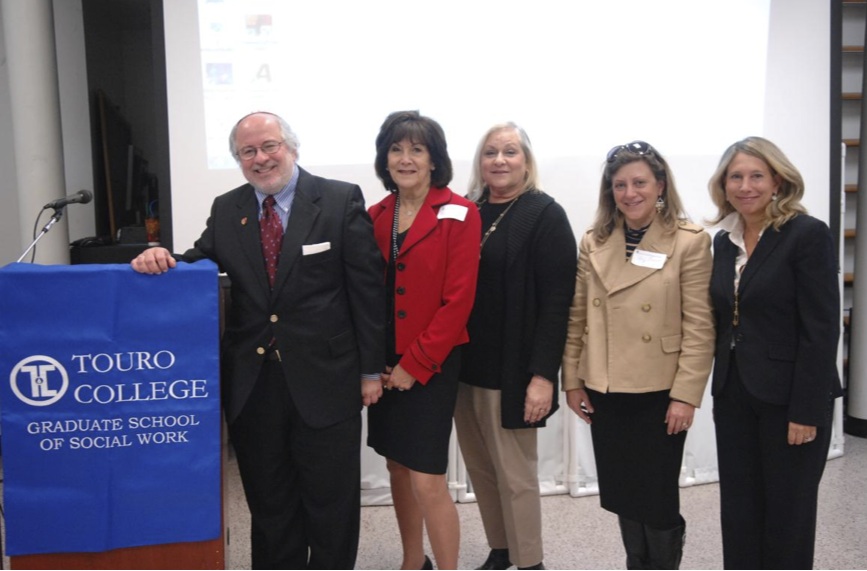Touro’s Graduate School of Social Work Tackles “Bullying”
At Community Day, National Experts Share Information and Solutions to Worldwide Phenomenon.

New York, N.Y. – Touro College's Graduate School of Social Work devoted its recent annual "Community Day‟ conference to the topic of bullying. Approximately 100 students, faculty and staff gathered to hear national experts on bullying prevention, intervention and treatment discuss and define the scope of the problem and solutions.
“At the Graduate School of Social Work, we seek to help those most at risk in society,” said Dr. Steven Huberman, dean of the Graduate School of Social Work. “Victims of bullying face risks every day.”
According to the American Psychological Association, approximately 40 to 80 percent of school-age children experience bullying at some point. Cyberbullying – defined as bullying using technology – affects nearly half of all American teens, according to The National Crime Prevention Council.
Professor Allison Bobick, director of student advancement and conference organizer, said she chose the bullying theme after being struck by the number of bullying-related suicides reported in the news. “Our research tells us that the old adage, „Sticks and stones may break my bones, but words will never harm me‟ is a dangerous myth. Words have meaning and a great deal of power,” Ms. Bobick said. “Bullying has escalated to a human rights concern in our school systems, our work sites and on the Internet.”
The lead presenters were award-winning authors Roni Benson and Ginger Lieberman, education consultants who developed a national bully prevention program, Bully Frog, to help students successfully deal with bullying in schools and cyberbullying behavior. Ms. Benson and Ms. Lieberman presented an overview of the problem; the role of schools and communities; characteristics of bullies and their families, and victims; and the role of the bystander.
“An individual is not born a bully. It is a learned behavior,” said Ms. Lieberman. “This generation of kids [is] much meaner and less respectful of teachers and parents [than previous generations]. It‟s a worldwide phenomenon people are trying to explain and resolve.”
The presenters said that 160,000 children miss school daily out of fear of being bullied, and that one out of four bullies will have a criminal record by age 30. They said one third of all children in the United States – over 5.7 million – are estimated to be involved in bullying either as bullies, targets or both, citing statistics from I-Safe, an organization involved with Internet safety. Additionally, 6,250 teachers are threatened with bodily harm daily, they told the audience.
Ms. Benson blamed part of today‟s problems on children being “desensitized” to violence.“Everything in life becomes a video game. Add to that the reality shows, [all of which] have had a severe impact on the behavior of this generation of kids.” Ms. Benson said that adults need to model positive behavior, and students need to be taught to understand and recognize emotions, accurately perceive situations, and predict the consequences of their personal acts.
Picking up on Ms. Bobick‟s reaction to the number of bullying-related suicides being reported, Ms. Lieberman said that suicide is the third largest killer of kids in the U.S. today. “Kids see commercials on how to commit suicide,” she said. We have to teach kids to walk tall and be upstanders, not bystanders. The message for adults is: „What you permit, you promote‟,” she concluded.
Other speakers at the conference included Jessica Klein, MSW, M.ED, Ph.D., assistant professor of sociology and criminal justice at Adelphi University; Liz Lasky, LCSW, Ph.D. candidate; Melanie Bennett, B.S. and current MSW student; and Amy Burzinski, MSW, LISW.
Media Contact
Barbara Franklin
Director of Communications
212-463-0400 x5530
Barbara.franklin@touro.edu

